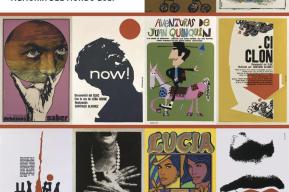- EssayBasics.com
- Pay For Essay
- Write My Essay
- Homework Writing Help
- Essay Editing Service
- Thesis Writing Help
- Write My College Essay
- Do My Essay
- Term Paper Writing Service
- Coursework Writing Service
- Write My Research Paper
- Assignment Writing Help
- Essay Writing Help
- Call Now! (USA) Login Order now
- EssayBasics.com Call Now! (USA) Order now
- Writing Guides

Importance Of Mother Tongue (Essay Sample)
Mother tongue is the initial language one learns as a baby; the language one grows up knowing, which is also known as the native language. A child first comprehends what is around them through the language they hear their mother communicating in from before they are born and throughout their lives. Mother tongue is valuable due to several reasons.
Mother tongue is crucial in framing the thinking and emotions of people. A language plays an essential part in the life of a human being. The language facilitates a comprehension of the surrounding, learning of concepts and attaining of various skills. A child who ably learns their mother tongue from the initial parts of their lives, amass extensive language skills that help them to express themselves and developing their thinking capacity. Additionally, this language cultivates confidence and a sense of self-worth to a child in learning other things.
Learning in school accentuates with the use of mother tongue. Mother tongue is a powerful tool in advancing the learning in people. In childhood, when children spend their time with parents, they develop communication skills, skills that become paramount in school settings, for them to participate in class. Also, when parents tell stories and discuss matters with their children, it develops their terminology and concepts. Thus, when learning is conducted, the children effortlessly follow and understand, resulting in educational success.
Mother tongue develops a strong foundation for learning additional languages. Children are capable of learning multiple languages while young. Therefore, having a strong foundation in their mother’s language equips them the skills to learn other languages. Children achieve this by transferring the different structure of a language to other languages. Grammar that develops when a child learns their native language is easily transferable, whereby; a child can easily guess the meaning or read between the meanings of words in different languages.
Mother language develops a personal and cultural identity. Personal identity emerges out of a person’s understanding of themselves, their surroundings and their history. An individual hears their native language first when in the womb, and it subconsciously begins shaping their thoughts and emotions. Nelson Mandela said, “Talk to a person in their language, and it goes to their heart.” Thus, it becomes the source of instance connection with family, society, culture, and identity. Its strong foundation creates a strong accepting of oneself through an understanding of social origin and character in the most basic and natural manner. Moreover, by upholding of the different languages spoken in society, cultural identity arises that flows undoubtedly in other aspects of an individual’s life.
The mother tongue creates job opportunities. Increased immigration and population growth of international students who speak other languages other than English characterize the society. Thus, to facilitate effective communication and understanding of each other, different sectors of the economy, such as schools, health and in businesses, necessitates the need for an understanding of different languages. Consequently, the necessity for persons competent in different languages arises in the job market. Understanding and fluency in various native dialects hence give individuals an upper hand in becoming language specialist, thus, gainfully employed.
Mother tongue elicits the development of strong family bonds. In various households, particularly those of immigrants, some family members such as grandparents and parents do not understand English commonly utilized in different countries. Thus, when a child grows up with particular emphasis on speaking in a language other than their mother tongue, results in a linguistic gap with some family members, consequencing in an emotional disconnect with other family members.
The knowledge of the native language is a crucial aspect of a person’s life. It not only stimulates their confidence but also creates awareness of their individual and cultural identity, facilitates learning and adoption of other languages, creates job opportunities and keeps families tightly knit.

Language Unlimited
The Power of Mother Tongue: Its Impact on Language Learning and Understanding.
" * " indicates required fields

Every year on 21 February, the world celebrates International Mother Language Day , which was established at the initiative of Bangladesh by UNESCO’s General Conference in 1999. The Day is an essential platform to promote the importance of cultural and linguistic diversity, and multilingualism for peaceful and sustainable societies.
UNESCO has been leading the way and advocating for multilingual education based on the mother tongue from the earliest years of schooling. Research shows that education in the mother tongue is a key factor for inclusion and quality learning, and it also improves learning outcomes and academic performance. This is crucial, especially in primary school to avoid knowledge gaps and increase the speed of learning and comprehension. And most importantly, multilingual education based on the mother tongue empowers all learners to fully take part in society. It fosters mutual understanding and respect for one another and helps preserve the wealth of cultural and traditional heritage that is embedded in every language around the world.
However, there is still a long way to go before guaranteeing all learners their right to education in their mother language. In most countries, the majority of students are taught in a language other than their mother tongue, which compromises their ability to learn effectively. It is estimated that 40 % of the world’s population does not have access to an education in a language they speak or understand. There are about 7,000 languages spoken around the world today. But linguistic diversity is increasingly threatened as more and more languages disappear at an alarming rate. And when a language disappears, it takes with it an entire cultural and intellectual heritage.
Globally, progress is being made in multilingual education based on mother tongue with growing understanding of its importance, particularly in early schooling, and more commitment to its development in public life.
Through its normative frameworks for language policy and education, UNESCO shares good practices in bilingual and multilingual education and mother tongue instruction. It works with Member States to integrate multilingual education into curriculums and education systems. Recent successful initiatives to promote mother language-based education have taken place in Djibouti, Gabon, Guinea, Haiti and Kenya.
The findings from UNESCO’s new report From rights to country level action shows national efforts made by different countries to foster cultural and linguistic diversity.
In addition, UNESCO recently unveiled the World Atlas of Languages , an unprecedented initiative to preserve, revitalize and promote global linguistic diversity and multilingualism.
Impact of COVID-19 on mother language education
School closures due to the COVID-19 pandemic has exposed and deepened pre-existing education inequalities around the world. The closures ranged from a global average of 20 weeks to above 70 in some cases, more than a full school year. As always, it has impacted vulnerable and marginalized learners the hardest, which includes indigenous and speakers of languages from minority groups. According to UN estimates, nearly 500 million students from pre-primary to upper-secondary school were unable to access any remote learning opportunities during the lockdowns.
In many countries, distance teaching and learning tools, programmes and content were not always able to reflect linguistic diversity: They were largely provided in dominant national or international languages. When remote learning content is not available in students’ mother tongue, it increases the risk of learning loss, dropouts and exclusion. Many learners lacked the necessary equipment, internet access, accessible materials, content relevant to contexts and needs, and human support that would have allowed them to follow distance learning. Many teachers also didn’t have the skills and readiness for using distance teaching. They also struggled with digital tools in languages that they didn’t always master.
The massive digital divide shows how connectivity has become a key factor to guarantee the right to education. The lack of access to digital learning content is deepening inequalities, marginalization and exclusion. Another element that exacerbates the digital divide is the fact that many languages are not present on the Internet: There is a major linguistic divide in cyberspace today. The inclusion of languages in the digital world and the creation of inclusive learning content is vital. Remote learning based on the mother tongue should be incorporated into education systems in order for all learners, especially those from linguistic minorities, to access education during school closures and beyond.
This year’s International Mother Language Day theme, “ Using technology for multilingual learning ,” is an opportunity to take stock of the experience of the past two years, to move forward differently and better.
- More on International Mother Language Day
- More on UNESCO’s work around languages in education
Related items
More on this subject.

Other recent articles


- Vishal's account
Essay On Importance of Mother Tongue – 10 Lines, Short and Long Essay

Key Points To Remember When Writing Essay On Mother Tongue
10 lines on mother tongue, paragraph on mother tongue in english, short essay on importance of mother tongue, long essay on mother tongue for children, what will your child learn from mother tongue essay.
Writing essays helps illuminate our thoughts and fosters a deep understanding of subjects. Especially when the topic is as personal and profound as one’s mother tongue. This essay on mother tongue in English aims to stress its importance, not just for linguistic evolution, but for cultural identity. The mother tongue is more than just a medium of communication; it’s a bridge to our ancestry, memories, and childhood. As you delve into this essay for children and students, you will discover the deep connection we share with our mother tongue and how it shapes our thinking, emotions, and worldview.
Writing an essay on such a poignant topic as the mother tongue demands an approach that combines research with emotional depth. The significance of our mother language cannot be overstated, making it vital to handle this subject with care. Here are some pivotal guidelines to ensure your mother language essay is both informative and impactful:
Topic Understanding: Before starting, ensure you truly understand the depth and nuances of the mother tongue and its implications on culture, identity, and personal development.
Personal Touch: Since this is a personal and deeply resonant topic, it’s beneficial to include anecdotes or experiences related to your mother tongue. It will make your essay relatable and heartfelt.
Research Well: While personal experiences are vital, grounding your essay in facts and studies can add depth. For instance, research on the cognitive benefits of learning in one’s mother tongue can be a valuable addition.
Cultural Significance: Emphasize the cultural and historical importance of mother tongues. Discuss how they play a role in preserving traditions, folklore, and shared community memories.
Global Context: Highlight the position of mother tongues in a globalized world. Discuss the challenges and importance of preserving them in the face of global languages.
Language Structure: Ensure your essay has a clear structure – an introduction, main body, and conclusion. Each section should flow logically to the next, creating a coherent narrative.
Originality: While it’s okay to seek inspiration from other sources, make sure your essay is original. Avoid plagiarism and aim for authenticity in your words and ideas.
Proofread: Once you’ve penned down your thoughts, take the time to review your essay. Check for grammatical errors, ensure smooth transitions between points, and verify that the content aligns with the topic.
Engaging Conclusion: Conclude your mother language essay in a manner that leaves a lasting impression on readers, emphasizing the timeless importance and personal connection we all share with our native languages.
The mother tongue, our first language, forms the cornerstone of our cultural and personal identities. This language resonates with our earliest memories, emotions, and experiences. Here’s a short essay for lower primary classes that encapsulates the essence of the mother tongue in 10 straightforward lines:
1. Mother tongue is the first language we learn from our parents.
2. It holds our family’s stories, songs, and secrets.
3. Every culture has its unique mother tongue that shapes its identity.
4. Our mother tongue helps us express our truest feelings easily.
5. Learning in our mother tongue makes understanding simpler and fun.
6. It connects us to our grandparents and ancient traditions.
7. Through it, we can understand our culture’s folktales and songs.
8. Every mother tongue is special and deserves to be cherished.
9. By speaking in our mother tongue, we celebrate our heritage.
10. Our mother tongue is like a comforting lullaby, always close to our heart.
The mother tongue, a gift bestowed upon us from birth, is the vessel of our earliest memories, emotions, and cultural expressions. Its importance transcends mere communication, embedding itself into the very fabric of our identity. The following paragraph delves into the essence of the mother tongue when expressed in English:
The English language, while globally dominant, often finds itself intertwined with a myriad of mother tongues, each enriching it with unique nuances. Our mother tongue, intrinsically linked to our heritage and identity, carries tales of our ancestors and the melodies of lullabies sung to us as children. This language, deeply rooted in emotions and memories, forms an irreplaceable part of our psyche. Even as we navigate the vast expanse of global languages, our mother tongue remains our anchor, providing solace, authenticity, and an unmistakable sense of home.
Recognizing the profound significance of our mother tongue helps in appreciating the cultural tapestries that shape our world and our place within it.
The mother tongue, often considered the language of the soul, encapsulates the essence of one’s culture, heritage, and personal experiences. Its resonance reverberates far beyond mere words, acting as a compass that guides our emotional and cognitive landscapes. Here’s a concise essay exploring the profound significance of the mother tongue:
Our mother tongue, the very first language that dances on our lips, is intrinsically tied to our identity. It’s not merely a medium of communication, but a tapestry woven with threads of memories, emotions, and cultural traditions. Every lullaby sung, every story narrated, and every emotion expressed finds its purest form in our mother tongue. Children, when introduced to concepts in their native language, exhibit enhanced comprehension and a deeper emotional connection. Furthermore, our mother tongue serves as a gateway to our cultural heritage, preserving age-old traditions, stories, and values. In an age dominated by globalization, the importance of cherishing and preserving our mother tongue cannot be overstated. For in its melodies and rhythms, we find the echoes of our past and the aspirations of our future.
This intimate bond with our mother tongue anchors us, reminding us of our roots even as we explore new linguistic horizons.
The mother tongue, our primary language, forms an intrinsic part of our identity. It ties us to our cultural heritage, shapes our cognitive processes, and influences our emotional responses. Understanding its significance, especially in the realms of education and national development, is imperative. In this essay, we’ll delve deeper into the essence of the mother tongue and explore ways to promote its preservation and growth.
Importance of Mother Tongue
Our mother tongue is much more than just a language; it is an embodiment of our history, culture, and collective memory. It serves as a bridge connecting us to our ancestors, the values they upheld, and the tales they told. This deep-seated connection impacts various facets of our lives, especially in education and national development.
Significance in National Development
A nation’s strength isn’t solely determined by its economy or military prowess, but also by the preservation and promotion of its cultural heritage. The mother tongue plays a pivotal role here. It fosters unity, instills a sense of belonging, and reinforces shared values. By promoting and preserving our mother tongue, we ensure that our national identity remains intact, even in the face of rapid globalization.
Importance in Education
Educating children in their mother tongue has myriad benefits, including:
Enhanced comprehension: Concepts are grasped faster when taught in a child’s native language.
Emotional connection: Students relate better to content when it’s in their mother tongue, fostering a deeper emotional understanding.
Boosted confidence: Children are more expressive and confident when communicating in their primary language.
Cultural preservation: Teaching in the mother tongue ensures that traditional values and stories are passed down to younger generations.
Holistic development: A balance of mother tongue and global languages ensures a well-rounded education.
Ways To Promote Mother Tongue
1. Celebration of Language Days: Hosting annual events celebrating various mother tongues can instill pride and promote usage.
2. Incorporate in School Curriculum: By including mother tongue literature and stories in school curriculums, we ensure it remains a vital part of a child’s education.
3. Encourage Media Representation: Local television shows, radio programs, and films can help in the widespread dissemination of the language.
4. Literature Festivals: Hosting events that focus on literature in one’s mother tongue can amplify its reach and appreciation.
5. Language Classes: Organizing community-based classes to teach and preserve the language ensures that younger generations stay connected to their roots.
Through the Mother Tongue essay, your child will grasp the profound significance of their primary language, understanding its role beyond mere communication. The essay underscores the intimate relationship between culture, identity, and language, emphasizing how it shapes cognitive processes and emotional bonds. Moreover, by appreciating the importance of mother tongues in education and national development, your child will gain a holistic perspective on its relevance in the global context.
1. Can A Child Have More Than One Mother Tongue?
Absolutely! A child can indeed have more than one mother tongue, especially if they are raised in a bilingual or multilingual environment. When children are exposed to multiple languages from birth or at a very young age and use them frequently in various spheres of life (e.g., one language with one parent and another with the second parent), they can develop native proficiency in both, effectively having multiple mother tongues.
2. What Is The Difference Between Mother Tongue and First Language?
The terms “mother tongue” and “first language” are often used interchangeably. However, there’s a subtle distinction:
Mother Tongue: This typically refers to the language spoken at home, especially by one’s parents or caregivers. It’s deeply connected to one’s cultural and familial roots.
First Language: This is the language that a person learns first and in which they are most fluent or comfortable. In many cases, a person’s mother tongue and first language are the same, especially if they continue to use that language predominantly. However, due to circumstances such as migration or a change in the primary language of education, a person’s first language might shift from their mother tongue.
Both terms emphasize the foundational role of the language in one’s life, but the specific focus of each can vary based on context and individual experiences.
The mother tongue, intricately woven into our identity, remains a testament to our cultural heritage, familial bonds, and individual narratives. Its significance extends beyond simple communication, touching upon the core of our emotions, memories, and expressions. Through essays and discussions, we not only underscore its importance but also educate and empower the younger generation to cherish and uphold this linguistic treasure. Recognizing, celebrating, and promoting our mother tongue ensures the preservation of our rich tapestry of traditions, stories, and values for generations to come.
Language Development Activities for Children Language Development Problems in Bilingual Children
- RELATED ARTICLES
- MORE FROM AUTHOR

Fun Iceland Facts for Kids

Essay On River - 10 Lines, Short and Long Essay for Children Students

Guidelines Regarding School Bag Weight - Things You Should Know

Nouns That Start With G (With Types and Example Sentences)

Coding for Kids - Why, When and How to Get Started

This Book Can Explain the COVID-19 Pandemic to Your Kid When You Don't Know How To
Popular on parenting.

245 Rare Boy & Girl Names with Meanings

Top 22 Short Moral Stories For Kids

170 Boy & Girl Names That Mean 'Gift from God'

800+ Unique & Cute Nicknames for Boys & Girls
Latest posts.

Cookie Monster Coloring Pages - Free Printable Pages For Kids

Robot Coloring Pages - Free Printable Pages For Kids

Cheerleading Coloring Pages - Free Printable Pages For Kids

Essay On Holi - 10 lines, Short and Long Essay for Students and Children

- High contrast
- Our history
- Children in India
- Our partners
- Where we work
- Frequently asked questions
- Press centre
Search UNICEF
Why mother tongue education holds the key to unlocking every child's potential, the transformative role of learning in children’s native language..

Imagine a world where the first words you learn aren't just sounds, but keys unlocking understanding, confidence, and a boundless love for learning. This is the promise of mother tongue education, often met with skepticism due to the misconception that it's not "aspirational" enough. But is this truly the case? Let's delve deeper and discover why embracing a child's mother tongue in education holds immense potential, weaving together threads of cultural pride, cognitive development, and a future brimming with possibilities.
For many children, especially in tribal areas, classrooms and language of instruction feel foreign, creating an invisible wall between them and knowledge. Studies reveal the emotional toll, with children struggling, losing confidence, and their inherent curiosity fading. This is where the power of mother tongue education shines. When a child learns in their familiar language, the world opens up. Concepts transform from abstract notions into relatable experiences, igniting a spark of understanding and a sense of "I can do this!"
The belief that mother tongue education lacks ambition stems from equating global success with a single dominant language. This overlooks the power and beauty of multilingualism, and the profound impact on a child's cognitive and emotional development.
A Bridge to Understanding:
When children learn in mother tongue, they navigate knowledge with confidence and ease. Concepts become clearer, ideas flow freely, and the joy of discovery amplifies. Imagine a tribal child understanding math through their own language, promoting a sense of belonging and active participation.
Building a Strong Foundation:
Studies have consistently shown that children who receive education in their mother tongue develop stronger cognitive skills, particularly in critical thinking, problem-solving, and creativity. This solid foundation lays the groundwork for future academic success, allowing them to not only grasp complex subjects but also excel in other languages they may encounter later.
Boosting Confidence and Self-Esteem:
Beyond academic benefits, mother tongue education fosters a sense of self-worth and cultural identity. When a child expresses themselves confidently in their native language, they radiate self-assurance and a deep connection to their heritage. This intrinsic motivation fuels their desire to learn, propelling them forward on their educational journey.
Embracing Diversity:
India's linguistic landscape, with over 22 official languages and countless dialects, is rich and diverse. Embracing this diversity through mother tongue education celebrates each language's cultural heritage, creating an equitable and inclusive system that values all children's unique identities.
Challenges and Opportunities:
Implementing mother tongue education effectively requires a concerted effort. The sheer number of languages spoken in India necessitates careful planning, resource allocation, and teacher training. Additionally, addressing the misconception that fluency in a dominant language is essential for success requires a shift in mindset, both within the educational system and society at large.
However, these challenges are not impossible. The National Education Policy 2020 and initiatives like UNICEF's Multilingual Education programs offer a clear path forward. Already, we see success stories unfolding: Children in Chhattisgarh are thriving, their confidence soaring as they learn in their native Halbi language. In Jharkhand, five tribal languages are being used to weave magic, bridging hearts and minds through stories and songs. Rajasthan is mapping its linguistic landscape, paving the way for a brighter future with Multilingual Education. These examples showcase the empowering potential of mother tongue education. By working together with communities, stakeholders, and technology, we can unlock this potential and transform the lives of millions of children.
The Future is Multilingual:
Imagine a future where every child, regardless of their background, can access quality education in their mother tongue. A future where classrooms resonate with the diverse melodies of India's languages, fostering a love for learning and a celebration of cultural richness. This is the future we can create by embracing mother tongue education, not as a limitation, but as a powerful tool to empower children, unlock their potential, and build a brighter future for all.
Related topics
More to explore.
Creating impact together with adolescent reporters
Health workers in rural Assam are braving the odds
Braving the odds to vaccinate children
UNICEF, Dainik Jagran come together for Critical Appraisal Skills Workshop to work towards reducing number of zero-dose children
UNICEF, Amar Ujala hold Critical Appraisal Skills Workshop focusing on reaching the last mile of children with lifesaving routine immunization
Home — Essay Samples — Literature — Mother Tongue — An Analysis of “Mother Tongue” by Amy Tan
An Analysis of "Mother Tongue" by Amy Tan
- Categories: Mother Tongue
About this sample

Words: 633 |
Published: Jan 30, 2024
Words: 633 | Page: 1 | 4 min read
Table of contents
Summary of mother tongue by amy tan, analysis of language usage, examination of cultural influences, language and power dynamics.
- Tan, Amy. “Mother Tongue,” The Threepenny Review , no. 43, 1990, pp. 6–8.
- Crystal, David. The Cambridge encyclopedia of the English language. Cambridge University Press, 2018.
- Lippi-Green, Rosina. English with an accent: Language, ideology, and discrimination in the United States. Routledge, 2012.

Cite this Essay
Let us write you an essay from scratch
- 450+ experts on 30 subjects ready to help
- Custom essay delivered in as few as 3 hours
Get high-quality help

Prof. Kifaru
Verified writer
- Expert in: Literature

+ 120 experts online
By clicking “Check Writers’ Offers”, you agree to our terms of service and privacy policy . We’ll occasionally send you promo and account related email
No need to pay just yet!
Related Essays
2 pages / 711 words
2 pages / 759 words
2 pages / 887 words
6 pages / 2692 words
Remember! This is just a sample.
You can get your custom paper by one of our expert writers.
121 writers online
Still can’t find what you need?
Browse our vast selection of original essay samples, each expertly formatted and styled
Related Essays on Mother Tongue
Angelova, M., & Tamez-Méndez, M. A. (2019). Negotiating identities and languages: The experiences of immigrant families. Bilingual Research Journal, 42(3), 289-305.Canagarajah, S. (2006). Negotiating communicative norms and [...]
Amy Tan's essay "Mother Tongue" explores the complexities of language and its impact on one's identity and relationships. Tan reflects on her experiences as a bilingual and bicultural individual, shedding light on the challenges [...]
Language is not merely a tool for communication; it is a vessel that carries our thoughts, emotions, and cultural identities. In Amy Tan's essay "Mother Tongue," she explores the profound impact of language on our lives and the [...]
Do you ever stop to think about the power and beauty of language? In her essay "Mother Tongue," Amy Tan explores the intricate relationship between language and identity, delving into the complexities of communication within [...]
Everyone who speaks the English language, does not speak it the same way. It is rare to find people that speak English the exact same way word for word, because there are so many ways to speak English. Amy Tan uses a name to [...]
Not all people who speak the English language speak it the same way. It is very uncommon to find two people that speak the exact same English because there are so many different forms of the language. This is the argument that [...]

Related Topics
By clicking “Send”, you agree to our Terms of service and Privacy statement . We will occasionally send you account related emails.
Where do you want us to send this sample?
By clicking “Continue”, you agree to our terms of service and privacy policy.
Be careful. This essay is not unique
This essay was donated by a student and is likely to have been used and submitted before
Download this Sample
Free samples may contain mistakes and not unique parts
Sorry, we could not paraphrase this essay. Our professional writers can rewrite it and get you a unique paper.
Please check your inbox.
We can write you a custom essay that will follow your exact instructions and meet the deadlines. Let's fix your grades together!
Get Your Personalized Essay in 3 Hours or Less!
We use cookies to personalyze your web-site experience. By continuing we’ll assume you board with our cookie policy .
- Instructions Followed To The Letter
- Deadlines Met At Every Stage
- Unique And Plagiarism Free
Exploring Language and Identity: Amy Tan's "Mother Tongue" and Beyond

- Resources & Preparation
- Instructional Plan
- Related Resources
In the essay “Mother Tongue,” Amy Tan explains that she “began to write stories using all the Englishes I grew up with.” How these “different Englishes” or even a language other than English contribute to identity is a crucial issue for adolescents. In this lesson, students explore this issue by brainstorming the different languages they use in speaking and writing, and when and where these languages are appropriate. They write in their journals about a time when someone made an assumption about them based on their use of language, and share their writing with the class. Students then read and discuss Amy Tan's essay “Mother Tongue.” Finally, they write a literacy narrative describing two different languages they use and when and where they use these languages.
Featured Resources
Discussion Questions for "Mother Tongue" : Have students discuss Amy Tan's essay in small groups, using these discussion questions.
Literacy Narrative Assignment : This handout describes an assignment in which students write a literacy narrative exploring their use of different language in different settings.
From Theory to Practice
NCTE has long held a commitment to the importance of individual student's language choices. In the 1974 Resolution on the Students' Right to Their Own Language , council members "affirm[ed] the students' right to their own language-to the dialect that expresses their family and community identity, the idiolect that expresses their unique personal identity." The Council reaffirmed this resolution in 2003 , "because issues of language variation and education continue to be of major concern in the twenty-first century to educators, educational policymakers, students, parents, and the general public."
Rebecca Wheeler and Rachel Swords assert that: "the child who speaks in a vernacular dialect is not making language errors; instead, she or he is speaking correctly in the language of the home discourse community. Teachers can draw upon the language strengths of urban learners to help students codeswitch-choose the language variety appropriate to the time, place, audience, and communicative purpose. In doing so, we honor linguistic and cultural diversity, all the while fostering students' mastery of the Language of Wider Communication, the de-facto lingua franca of the U.S."
This lesson focuses on ways to investigate the issues of language and identity in the classroom in ways that validate the many languages that students use. To help students gain competence in their ability to choose the right language usage for each situation, explorations of language and identity in the classroom are vital in raising students' awareness of the languages they use and the importance of the decisions that they make as they communicate with others.
Further Reading
Common Core Standards
This resource has been aligned to the Common Core State Standards for states in which they have been adopted. If a state does not appear in the drop-down, CCSS alignments are forthcoming.
State Standards
This lesson has been aligned to standards in the following states. If a state does not appear in the drop-down, standard alignments are not currently available for that state.
NCTE/IRA National Standards for the English Language Arts
- 1. Students read a wide range of print and nonprint texts to build an understanding of texts, of themselves, and of the cultures of the United States and the world; to acquire new information; to respond to the needs and demands of society and the workplace; and for personal fulfillment. Among these texts are fiction and nonfiction, classic and contemporary works.
- 4. Students adjust their use of spoken, written, and visual language (e.g., conventions, style, vocabulary) to communicate effectively with a variety of audiences and for different purposes.
- 9. Students develop an understanding of and respect for diversity in language use, patterns, and dialects across cultures, ethnic groups, geographic regions, and social roles.
- 10. Students whose first language is not English make use of their first language to develop competency in the English language arts and to develop understanding of content across the curriculum.
- 11. Students participate as knowledgeable, reflective, creative, and critical members of a variety of literacy communities.
Materials and Technology
- Copy of "Mother Tongue" by Amy Tan
- Blue pens, Black pens, and pencils (optional)
- Discussion Questions for "Mother Tongue"
- Literacy Narrative Assignment
- Essay Rubric
- Student Self-Assessment
Preparation
- Arrange for copies of the essay "Mother Tongue" by Amy Tan. The essay is widely anthologized. It was originally published in The Threepenny Review in 1990.
- Make an overhead transparency of the Discussion Questions for "Mother Tongue," or arrange for an LCD projector to show the questions to the class.
- Make copies of the Literacy Narrative Assignment , Literacy Narrative Rubric , and Student Self-Assessment .
- Test the Venn Diagram on your computers to familiarize yourself with the tools and ensure that you have the Flash plug-in installed. You can download the plug-in from the technical support page.
Student Objectives
Students will
- develop critical reading strategies.
- discuss and evaluate the impact of language on identity formation and self-esteem of several writers.
- expand their awareness of the role language plays in identity formation.
- write their own literacy narratives.
Session One
What are the different "languages" you use? When and why? Consider both reading and writing, and don't forget about email! If you speak another language, include it (or possibly them if you know more than one).
- Encourage students to read their responses aloud.
- As they do, keep track on the board or on an overhead transparency of the different "languages" they are describing.
- Discuss the interaction of language usage and choice with audience and occasion by focusing on the examples the students have provided.
- For homework, ask students to write a journal entry that describes a time when someone made assumptions or even a judgment (negative or positive) about them based on their language usage (written or spoken). For those who say they've never had such an experience, suggest writing about a situation they've observed involving someone else.
Session Two
- Open the class by asking volunteers to share their journal entries.
- Look for similarities among the experiences students describe, and discuss them as a group. Ask whether they notice stereotypes at work in the situations they describe.
- If students have access to the Internet, introduce Amy Tan by sharing audio and video clips of her talking and reading. Biographical information about Amy Tan can be found at Bookreporter.com .
- Hand out copies of "Mother Tongue," and read the first two paragraphs aloud.
- Discuss why Tan opens with an explanation of what she is not .
- Read the next two paragraphs. Ask students to explain what Tan means by "different Englishes."
- Shift the discussion by asking why Tan speaks a "different English" with her mother than with her husband. Ask students to consider whether doing so is hypocritical.
- Assign the remainder of the essay as reading for homework.
Session Three
- What point is Tan making with the example of her mother and the hospital?
- What point is she making with the example of the stockbroker?
- Tan says that experts believe that a person's "developing language skills are more influenced by peers," yet she thinks that family is more influential, "especially in immigrant families." Do you think family or peers exert more influence on a person's language?
- Why does Tan discuss the SAT and her performance on it?
- Why does she envision her mother as the reader of her novels?
- After about 15 minutes, ask each group to explain their responses to the questions. Encourage them to support their responses with specific reference to Tan's essay.
- Ask them to write notes and ideas in their journals using the Literacy Narrative Assignment . Stress that students are only gathering ideas. They are not creating the polished essay at this point.
Session Four
- Open by discussing the assignment itself. Explain that a literacy narrative tells a specific story about reading or writing. Tan's article is essentially a literacy narrative because it discusses events about language use from her past (whether good or bad) and reflects on how those events influence her writing today.
- If desired, ask students to choose examples from the essay that connect writing from Tan's past to her present.
- Pass out copies of the Essay Rubric , and discuss the required components for the finished paper.
- Discuss the possibilities that students raised in their journal entries.
- To begin developing ideas further, ask students to use the Venn Diagram to map and compare the two "languages" that they will explore in their essays. Ask them to think creatively about the qualities and characteristics of the "languages."
- Allow students time to work on their literacy narratives in class.
- Assign a draft of the literacy narrative as homework; each student should bring his or her draft to the next class session (on a disk if you are working in a computer lab, or a printed copy otherwise).
- Additionally, if you are not working in a computer lab, ask students to bring a pencil, a black pen, and a blue pen to class.
Session Five
- Begin with a discussion of the problems students are encountering with the assignment.
- Brainstorm ways to address one or two of the challenges.
- Remind students of the criteria for the assignment in the Literacy Narrative Essay Rubric . For the peer review, ask students to compare the drafts that they read to the characteristics described in the rubric.
- Each student will read three papers, each written by someone else.
- On the first paper that you read, make your comments with your black ink pen or in bold.
- On the second paper, make your comments with the blue ink pen or in italics.
- On the third paper, make your comments with your pencil or with underlined letters.
- Finally, you'll return to your own essay and read over the comments.
- Arrange the students in small groups of four, having students rotate the drafts among group members as they read and respond. Adjust groupings as needed to accommodate the number of students in your class.
- Once students have read and responded to all the drafts, discuss questions, comments, and concerns students have as they prepare to revise.
- Encourage students to pay particular attention to comments that all of their peer readers agreed upon when reading their drafts.
- For homework, have students create their final, polished draft of the literacy narratives. Collect the papers at the beginning of the next session.
- To explore a more controversial response to language usage, students might read "If Black English Isn't a Language, Then Tell Me, What Is" by African American author James Baldwin. Written before the term "ebonics" came into usage, it is a brief but highly political argument about the link between language and identity and the damage school systems can cause by privileging one language (or dialect) over another. It can be found in the New York Times archives (29 July 1979, page E19).
- Students also might examine a passage from the fiction of Cormac McCarthy, Sandra Cisneros, or another author who includes Spanish in his or her work—without translating it. What is the effect on a reader who does not know Spanish? What might be the purpose of an author making the decision to write whole sections in Spanish?
- To pursue the link between power and language, students might read the poem "Parsley" by Rita Dove. It explores the historical incident in which the Dominical Republic dictator Rafael Trujillo used the pronunciation of the word "parsley" to separate Dominicans who speak Spanish from the persecuted Haitians who speak a French Creole (a topic Edwidge Danticat takes up in her novel The Farming of Bones ).
Student Assessment / Reflections
Observe students for their participation during the exploration and discussion of Tan’s essay and their own language use. In class discussions and conferences, watch for evidence that students are able to describe specific details about their language use. Monitor students’ progress and process as they work on their lilteracy narratives. For formal assessment, use the Literacy Narrative Rubric . Ask students to complete the Student Self-Assessment to reflect on their exploration of language and their literacy narratives.
- Calendar Activities
- Professional Library
- Student Interactives
Students consider the portrayal of Asians in popular culture by exploring images from classic and contemporary films and comparing them to historical and cultural reference materials.
This interactive tool allows students to create Venn diagrams that contain two or three overlapping circles, enabling them to organize their information logically.
Add new comment
- Print this resource
Explore Resources by Grade
- Kindergarten K

A Summary and Analysis of Amy Tan’s ‘Mother Tongue’
By Dr Oliver Tearle (Loughborough University)
‘Mother Tongue’ is an essay by Amy Tan, an American author who was born to Chinese immigrants in 1952. Tan wrote ‘Mother Tongue’ in 1990, a year after her novel The Joy Luck Club was a runaway success. In the essay, Tan discusses her relationship with language, and how her mother’s influence has shaped her use of English, as well as her attitude to it.
You can read ‘Mother Tongue’ here before proceeding to our summary and analysis of Amy Tan’s essay below.
‘Mother Tongue’: summary
Amy Tan begins her essay by offering her personal opinions on the English language. She recalls a recent talk she gave, when, upon realising her mother was in the audience, she was confronted with the fact that the formal standard English she was using in the public talk was at odds with the way she spoke at home with her mother. She then contrasts this with a moment when she was walking down the street with her mother and she used the more clipped, informal English she naturally uses with her mother, and her husband.
Tan calls this a ‘language of intimacy’. She points out that her mother is intelligent and reads things which Tan herself cannot begin to understand. But many people who hear her mother speak can only partially understand what she is saying, and some even say they can understand nothing of what she says, as if she were speaking pure Chinese to them.
Tan calls this clipped informal language her ‘mother tongue’, because it was the first language she learned and it helped to shape the way she saw the world and made sense of it.
Tan notes the difficulty of finding a term to describe the style of English her mother, as a Chinese immigrant to the United States, speaks. Many of the terms, such as ‘broken’ or ‘limited’, are too negative and imply her English is imperfect.
She acknowledges that when she was growing up, she was ashamed of the way her mother spoke. Her mother, too, was clearly aware of how her use of the language affected how seriously people took her, for she used to get her daughter to phone people and pretend to be ‘Mrs Tan’.
She observes that her mother is treated differently because of the way she speaks. She recounts a time when the doctors at the hospital were unsympathetic towards her mother when they lost the results of the CAT scan they had undertaken on her brain, but as soon as the hospital – at her mother’s insistence – called her daughter, they issued a grovelling apology.
Amy Tan also believes her mother’s English affected her daughter’s school results. Tan acknowledges that, whilst she did well in maths and science, subjects with a single correct answer, she was less adept at English. She struggled with tests which asked students to pick a correct word to fill in the blanks in a sentence because she was distracted by the imaginative and poetic possibilities of other words.
Indeed, Tan conjectures that many Asian American children are probably encouraged to pursue careers in jobs requiring maths and science rather than English for this reason. But because she is rebellious and likes to challenge people’s assumptions about her, Tan bucked this trend. She majored in English at college and began writing as a freelancer.
She began writing fiction in 1985, and after several false starts trying to find her own style and idiom, she began to write with her mother in mind as the ideal reader for her stories. Indeed, her mother read drafts of her work.
And Tan drew on all the Englishes , plural, that she knew: the ‘broken’ English her mother used, the ‘simple’ English Tan used when talking to her mother, the ‘watered-down’ Chinese her mother used, and her mother’s ‘internal’ language which conveyed her passion, intent, imagery, and the nature of her thoughts. When her mother told her that what she had written was easy to read, Tan knew that she had succeeded in her aims as a writer.
‘Mother Tongue’: analysis
The title of Amy Tan’s essay is a pun on the expression ‘mother tongue’, referring to one’s first language. But Tan’s language, or ‘tongue’, has been shaped by her actual mother, whose first language (or mother tongue) was not English, but Chinese.
The different forms of English that mother and daughter speak are also a product of their backgrounds: whilst Tan’s mother is a Chinese immigrant to America, Tan was born in the United States and has grown up, and been educated, in an English-speaking culture.
Much of Tan’s 1989 novel The Joy Luck Club is about daughters and their relationships with their mothers. But Tan’s interest in language, both as a cultural marker and as a way of expressing thought and personality, is also a prevailing theme of the novel.
In this respect, if the parable ‘ Feathers from a Thousand Li Away ’ acts as preface to the novel, ‘Mother Tongue’, in effect, acts as a kind of postscript. It helps us to understand the way Tan approaches and uses language within the stories that make up The Joy Luck Club .
An overarching theme of Tan’s novel is mothers emigrating to America in the hope that their daughters will have better lives than they did. This is a key part of ‘Feathers from a Thousand Li Away’, and it helps us to understand Tan’s conflicted attitude towards her mother’s use of language as explored in ‘Mother Tongue’.
Many of the mothers in The Joy Luck Club , such as Betty St. Clair in ‘The Voice from the Wall’, feel isolated from those around them, never at home in America, and hyper-aware of their outsider status, despite becoming legal permanent citizens in the country. Tan’s autobiographical revelations in ‘Mother Tongue’ show us that her own mother struggled to be taken seriously among Americans, and Tan diagnoses this struggle as a result of her mother’s different way of speaking.
Tan, by contrast, used standard English – what used to be referred to, in loaded phrases, as ‘correct’ or ‘proper’ English – and was thus able to succeed in getting herself, and by extension her mother, taken seriously by others. Language is thus more than just a cultural marker: Tan reveals, in ‘Mother Tongue’, the extent to which it is a tool of power (or, depending on the use, powerlessness), particularly for those from migrant backgrounds.
In this connection, it is noteworthy that Tan chooses to focus on the school tests she undertook before concluding that her mother’s ‘broken’ style of English has been misunderstood – not just literally (by some people who’ve known her), but in terms of the misleading perceptions of her it has led others to formulate.
The class tests at school which reduced English proficiency to an ability to recognise a ‘correct’ answer are thus contrasted with Tan’s resounding final words of ‘Mother Tongue’, which see her seeking to capture the passion of her mother, the ‘nature of her thoughts’, and the imagery she uses: all things which her daughter has clearly inherited a respect for, and which school tests fail to capture or observe.
Discover more from Interesting Literature
Subscribe now to keep reading and get access to the full archive.
Type your email…
Continue reading
The Importance Of Mother Tongue
The beauty of the importance of mother tongue could have never been better expressed than by the great Nelson Mandela when he said,"If you talk to a man in a language he understands, that goes to his head. If you talk to him in his language, that goes to his heart."
A substantial spectrum of people worldwide is of the erroneous impression that mother tongue denotes only the language that an individual learns from their mother; rather, it is the speaker's dominant and home language which is foundational to the learning process. It is not only the first language according to the time of acquisition, but the first with regard to its importance and speaker's ability to master its linguistic and communicative aspects. The mother tongue as a matter of fact, defines a person’s thoughts. In this write-up, 'mother tongue' will be used interchangeably with 'indigenous' and 'vernacular' languages, in the broader context of ubuntu and value of the society at large.
At the expeditious rate at which urbanisation and the development of technology is occurring, it is beyond the shadow of doubt that tons of people globally are losing their understanding on the importance and the immeasurable impact of vernacular languages in their lives.
Children are most familiar with their mother tongue, as it is the language they speak at home. This language, if taught at schools, makes understanding better and learning easier. This because children enjoy more when they are taught in their mother tongue. They enjoy school more and feel more comfortable being surrounded by pupil and teachers speaking a familiar language. They gain confidence in themselves and surety about picking up new concepts with ease. This actually exponentially increases the self-esteem of the students. For this reason, kids learn faster and better in their mother tongue.
A film grasp of a learner’s mother tongue would facilitate easier learning for a new language, as it will lay a strong foundation for learning. When one thoroughly knows their indigenous language, they can have high-potency literacy skills in other languages. The mother tongue in learning a foreign language is indistinguishable to a well from which vast knowledge is drawn. It is often used as a formulation to motivate and titivate learning a new language as it allows you to explore the new language in real life communication.
The mother tongue incontrovertibly keeps our cultural heritage alive as it best helps us stay connected to our culture and roots. Often the essence and meaning of culture is modified during the direct or indirect translation of one language to another. The mother tongue is also an essential tool in conversing deeply with our grandparents and ancestors. It would be an intolerable deed to appeal to our ancestors in a foreign language.
As businesses go the local way, the importance of mother tongue has exponentially increased. Thus, in such scenarios, having a firm understanding of one's mother tongue, where one knows how to read and write, is immensely helpful if you are interested in becoming a successful businessperson. Use of the mother language in business, also aids in creating an adamantine bond between you and the local customers whose support in a business can raise the business sky-high.
Knowing your mother tongue well is a matter of pride. It boosts one's confidence and creates one's awareness in the individual mind and helps them connect with their local environment and culture in a better manner. The mother tongue also plays a prestigious role in shaping the personality and mentality of an individual.
In order to primarily promote the mother tongue, it is of great essence to embolden literature in the mother tongue. Novels and poems in the mother tongue would assist the reader to pick up the morphological aspects and communicative facets of the language.
As a way to enhance the promotion of the mother tongue, we can utilise media. Radio producers and presenters may employ the mother tongue in the production and presentation of both advertisements and news. For instance, the Starz FM station of Tsholotsho in Zimbabwe present all their production in English interchanging with indigenous languages. Notwithstanding that with the advancing technology, only a handful of people give attention to the radio, the use of the mother tongue in production makes an enormous difference.
The production of films in the mother tongue, significantly exposes tons of people to the use of indigenous languages; which in a way, promote cultural diversity with translations to English helping in the learning process. This has clearly been recognised and put to application by the award-winning Mzilikazi actor Percy Soko in most of his productions, these include: Mandla, Scars-Amanxeba, Jaiva Sbone amongst many others.
To promote the mother tongue, it is crucial that indigenous languages are nationally recognised as official subjects in school. That way, it would mean that the learning population will always find itself equipped with a deep understanding of the language.
With the technological improvements we are experiencing, it is patent that we are heading for a period dominated by computers. This is exactly why it is critical that computers are also developed to clearly recognise vernacular languages.
Due to the spread of the European and American culture around the whole world, countless people globally are of the delusive belief that being fluent in English designates superiority of an individual. Consequently, it is really important that family elders teach the growing population about the importance and the undisputed role played by the mother tongue.
Parents of today are given to naming their children English names that they hardly know meanings to. It is therefore, essential that this tradition of correctly naming children is passed from generation to generation, to reflect a hereditary foundation and promote the spirit of ubuntu. The government also has a critical role to play in the promotion of native languages as evidenced in the provisions of the Constitution of Zimbabwe, (GoZ, 2013). Legislative debates/ announcements can also be done in vernacular languages, enabling the majority populace to follow the proceedings and to identify with the outcomes as their own.
The most effective method to achieve maximum promotion of the mother tongue is that, teachers in schools should use multilingual teaching. This approach in the teaching and learning process will brighten the children's perspective on the mother tongue, and enhance the understanding of the sophisticated concepts that need to be grasped.
Although, people have begun to pave the way to promoting the mother tongue, it has been an absolute mammoth task; as nut-cracking challenges are faced every step of the way. As such, these challenges include the paucity of vocabulary in these vernacular languages. In as much as teachers have adopted the strategy of multilingual teaching, they face gigantic hardships when they have to translate certain words to indigenous languages as some words are just unavailable.
Notably, in the latest amendment of the Constitution of Zimbabwe, sixteen languages have been officially recognised. Amongst those, the lion's share goes to indigenous languages. For this reason, it is a tough thing to try multilingual teaching in schools as the student emerge from different families that do not necessarily consider the same language as their mother tongue
With the well spread belief that indigenous languages are inferior, people seldom communicate in the mother tongue lately. In fact, nobody even wants to hear about the mother tongue. Whenever one attempts to promote it, people view him as boring and bogus. This negative eye that has been set against vernacular languages has made it very difficult to successfully promote them.
As most of our local men are now engaging into international business, investors are sought abroad. It is due to this scenario that the business industry has no room for the mother tongue. In order to please the foreign investors, the work space has absolutely ruled by the universal English language.
In conclusion, mother tongue is an international phenomena which should be taken seriously as stated by Mahatma Gandhi's famous words,"If the English educated neglect, as they have done and even now continue, as some do, to be ignorant of their mother tongue, linguistic starvation will abide."
Related Samples
- Essay on Technological Change and Population Growth
- Importance of VR Learning Persuasive Essay Example
- Are Humans a Part of Nature or Somehow Apart from It?
- Essay Example on How Has Infection Shaped the Human Genome?
- CRISPR-Cas9 Essay Example
- The Importance of Learning A Second Language Essay Sample
- Personal Narrative Essay: Importance Of Mathematics
- Essay on The Impact of Technology on Education
- Difference Between Describe and Explanation Essay Example
- Rewiring the Brain Essay Example
Didn't find the perfect sample?

You can order a custom paper by our expert writers

Essay on Importance of Mother Tongue
Students are often asked to write an essay on Importance of Mother Tongue in their schools and colleges. And if you’re also looking for the same, we have created 100-word, 250-word, and 500-word essays on the topic.
Let’s take a look…
100 Words Essay on Importance of Mother Tongue
Introduction.
Mother tongue is the first language we learn. It is our identity, expressing our culture and values.
Connection with Culture
Our mother tongue connects us to our roots. It carries the traditions and customs of our ancestors, keeping our culture alive.
Emotional Bond
Speaking in our mother tongue creates a sense of belonging. It strengthens our emotional bond with family and community.
Learning Abilities
Studies show that children who learn in their mother tongue develop better cognitive skills. It also aids in learning other languages.
In conclusion, the mother tongue is crucial. It shapes our identity, connects us to our culture, and enhances learning.
250 Words Essay on Importance of Mother Tongue
The mother tongue, the language learned from birth, is a vital tool that shapes our thought processes, emotions, and perceptions. It has a profound influence on cognitive development and identity formation.
Cognitive Development
The mother tongue is the cornerstone of cognitive development. It aids in the comprehension of complex concepts and the development of critical thinking skills. Studies suggest that children who receive early education in their mother tongue demonstrate better cognitive flexibility, creativity, and problem-solving abilities.
Identity Formation
The mother tongue is intrinsically tied to a person’s cultural identity. It carries the traditions, customs, and collective wisdom of a community. Preserving and using one’s mother tongue helps maintain cultural diversity and fosters a sense of belonging.
Language and Education
Education in the mother tongue is crucial for academic success. It enables students to grasp complex ideas more effectively, resulting in better academic performance. UNESCO’s advocacy for mother tongue-based education reflects its importance in promoting inclusive and quality education.
In conclusion, the importance of the mother tongue cannot be overstated. It is a fundamental part of our identity, a catalyst for cognitive development, and a key to academic success. Recognizing and promoting the use of the mother tongue is crucial for sustaining linguistic diversity and fostering inclusive societies.
500 Words Essay on Importance of Mother Tongue
Language is a fundamental aspect of human life. It is a tool for communication, a means of expressing thoughts, emotions, and ideas, and a vehicle for cultural transmission. Among all languages, the mother tongue holds a unique place. It is the first language a child learns from their parents or community, and it forms the basis for their cognitive, social, and emotional development. This essay will delve into the importance of the mother tongue, especially in the context of education, cultural identity, and social integration.
The Mother Tongue and Cognitive Development
The mother tongue plays a critical role in cognitive development. It is through this language that children first make sense of their world. Research shows that children who receive early education in their mother tongue demonstrate better cognitive abilities than those who are educated in a second language. The reason is simple: understanding and expressing complex ideas is easier in one’s native language, which allows for more profound comprehension and cognitive development.
Preserving Cultural Identity
The mother tongue is more than a tool for communication; it is a symbol of cultural identity. It carries the traditions, values, and beliefs of a community, serving as a link between individuals and their cultural heritage. By promoting the use of the mother tongue, we ensure the preservation of diverse cultures and contribute to the richness of global cultural heritage.
Social Integration and Inclusivity
Promoting the use of mother tongue languages also fosters social integration and inclusivity. In multilingual societies, language can often serve as a barrier, causing marginalization of certain communities. By acknowledging and valuing all languages, we can create more inclusive societies where everyone feels valued and heard.
The Mother Tongue in Education
The role of the mother tongue in education cannot be overstated. UNESCO promotes mother tongue-based multilingual education, recognizing its benefits in improving learning outcomes. Children taught in their mother tongue are more likely to engage in the learning process, understand complex concepts, and perform better acadically. Moreover, it reduces dropout rates, as children feel more comfortable and confident in a learning environment that respects and acknowledges their language.
In conclusion, the mother tongue is of paramount importance in cognitive development, preserving cultural identity, promoting social integration, and enhancing educational outcomes. As we move towards an increasingly globalized world, it is crucial to remember the value of our linguistic roots. We must promote multilingualism and mother tongue education to create a world that is not only diverse but also inclusive and respectful of all cultures and languages. In doing so, we can ensure that every child, regardless of their linguistic background, has the opportunity to reach their full potential.
That’s it! I hope the essay helped you.
If you’re looking for more, here are essays on other interesting topics:
- Essay on Mothers love
- Essay on Mother’s Day
- Essay on Mother Teresa
Apart from these, you can look at all the essays by clicking here .
Happy studying!
Leave a Reply Cancel reply
Your email address will not be published. Required fields are marked *
Save my name, email, and website in this browser for the next time I comment.
Mother Tongue by Amy Tan: English v. The “Broken Language” Essay
Works cited.
In her essay ‘Mother Tongue’, Amy Tan tries to use her personal experience to describe the importance of language in a society. In this analysis, the author compares perfect English language with ‘broken language’.
Using English as an example, the author attempts to explain how language is important in communications. She says “…language is an essential key in enabling people to understand the definition of their identities”. In addition, the author says that she realized that language allows or authorizes individuals to participate effectively as members of a society.
It is worth noting that Amy Tan is fond of language. For instance, she says that she has written a number of books in English and Chinese. However, she admits that she has never been eloquent or rhetoric when her mother is present. This is the main argument the author has put forward by demonstrating the importance of language in her life. In addition, she argues that communication is difficult without a good language.
In actual sense, this essay is chiefly an analysis of personal views and perceptions of language. The author attempts to describe how language should be used and how people tend to use it in their day-to-day communication. She compares “standard English language” and “broken English language”. To develop her argument, the author has set the essay in the form of a memoir. For instance, she compares her oral use of language with her written language.
Tan informs her readers that the presence of her mother in one of her lecturers made her notice some differences between her oral and written language.
At this point in life, the author realized that she was not using the same language she had been using when communicating with her mother. Instead, she realized that she has been using “broken English” when communicating with her. Therefore, she started reflecting on her childhood and the role that the mother played in helping her shape her language and communication.
From this essay, one notices the manner in which Tan attempts to present her argument. It is evident that Tan is attempting to demonstrate how learning English has an impact in her and her life. The author analyzes her childhood experience. From her analysis, it is evident that circumstances frequently forced her to translate Chinese into English when communicating with other people at school or in her neighbourhood.
She attempts to argue that it is due to her difficulties in communicating in the two languages that drove her to become a writer. It is also clear that her life as a child was difficult because she was supposed to use Chinese at home, but change to English when at school or when with her peers. Her main ideas are good examples of the real life experience in American communities, especially where language barriers are evident.
Her use of personal experience is an important literal technique because it provides some sense of evidence and reality (Tan 1). In fact, the supporting content, which is particularly drawn from her life as a Chinese child growing up and relating with English children and teachers, provides some evidence that her narrative is convincing.
In addition, it is also effective in presenting her ideas. For instance, she says, “I am not an English scholar. I cannot give you anything beyond my personal points of view…” (Tan 1). This statement makes the opening sentence in the essay.
It seems to make the readers realize that the author will present her personal observations and experience. As such, the reader develops some interest in what the author has experienced in her life and what such experience could affect them. Secondly, Tan has presented her ideas that are based on common issues that everyone experiences or observes in nature, especially where immigrants are trying to fit into a new social environment defined by language barriers.
I tend to agree with Amy Tan for a number of reasons. First, I have seen people going through the same processes when trying to fit into new communities. Their children normally face the pressure of learning and using two languages- the “mother tongue” and the language used in the new society (Tan 3). This issue is good but challenging. It provides children with an ability to learn and apply two or more languages at a time.
In fact, it is worth noting that Amy Tan is presenting her ideas at a time when the issue of cultural diversity is common in the United States. America is a home to a large number of immigrants from all over the world. Therefore, the U.S. has become a culturally diverse society due to the presence of people from different ethnic backgrounds.
In fact, the issue of Standard English versus “Broken English” is a contemporary issue, especially in schools, public places and neighbourhoods. Although people must communicate, language barrier is always a problem in most cases. Therefore, the argument by the author contributes to the issue of language barrier, which is a current topic of debate in America.
Tan, Amy. Mother tongue. PDF file. Web.
- Chicago (A-D)
- Chicago (N-B)
IvyPanda. (2024, March 26). Mother Tongue by Amy Tan: English v. The "Broken Language". https://ivypanda.com/essays/mother-tongue/
"Mother Tongue by Amy Tan: English v. The "Broken Language"." IvyPanda , 26 Mar. 2024, ivypanda.com/essays/mother-tongue/.
IvyPanda . (2024) 'Mother Tongue by Amy Tan: English v. The "Broken Language"'. 26 March.
IvyPanda . 2024. "Mother Tongue by Amy Tan: English v. The "Broken Language"." March 26, 2024. https://ivypanda.com/essays/mother-tongue/.
1. IvyPanda . "Mother Tongue by Amy Tan: English v. The "Broken Language"." March 26, 2024. https://ivypanda.com/essays/mother-tongue/.
Bibliography
IvyPanda . "Mother Tongue by Amy Tan: English v. The "Broken Language"." March 26, 2024. https://ivypanda.com/essays/mother-tongue/.
- “Mother Tongue” Article by Amy Tan
- Linguistic Identity. “Mother Tongue” by Amy Tan
- Mother Tongue Analysis Essay
- The Significance of Language: “Mother Tongue”
- Amy Tan’s Story “Mother Tongue”
- Linguistic Dominance in the "Mother Tongue" by Amy Tan
- Denotation and Connotation on the Basis of Amy Tan’s Mother Tongue
- Mother Tongue by Amy Tan: What Does Your Language Say about Your Identity?
- Amy Tan’s and Personal English Learning Experience
- The Story "Two Kinds" by Amy Tan
- Across Cultures, English is the Word
- Language Investigation of the Effect of Texts on Social Values
- Role of Language in Forming Identities
- Language in the Study of History
- The Secrets of Reading: Breathing Life into Things

Mother Tongue Essay in 100, 150, 200, 300, 400, & 500 Words
Table of Contents
Mother Tongue Essay in 100 Words
Mother tongue essay.
Mother tongue, also known as a native language, holds immense significance in a person’s life. It is the language in which individuals form their first thoughts, communicate with their parents, and embrace their cultural heritage. This descriptive essay explores the essence of the mother tongue and its impact on one’s identity and communication skills. The melodious tones, unique vocabulary, and rich cultural nuances of a mother tongue create an undeniable emotional connection. It unites individuals with their roots, allowing them to express their true selves. Moreover, mastering one’s mother tongue strengthens communication skills and facilitates a deeper understanding of one’s heritage. The power of the mother tongue lies in its ability to forge connections, preserve traditions, and cultivate a strong sense of identity.
Mother Tongue Essay in 150 Words
Mother tongue.
Mother tongue is a term used to describe a person’s first language, the language they learn from their parents and use to communicate with their family and community. It is a powerful tool that shapes one’s identity and provides a connection to their cultural heritage.
In my case, my mother tongue is English. It is the language I grew up speaking, reading, and writing. I have vivid memories of my mother patiently teaching me how to pronounce words and construct sentences. English has become second nature to me, enabling the effortless expression of my thoughts and emotions.
However, I recognize the importance of mother tongues from diverse linguistic backgrounds. Each language carries a rich history, unique expressions, and cultural nuances. It is through one’s mother tongue that traditions and values are passed down from generation to generation.
Mastering multiple languages can be an incredible asset, allowing individuals to navigate multicultural environments and build bridges between different communities. It is essential that we celebrate and preserve the beauty of mother tongues, as they are a fundamental part of our collective human experience.
Mother Tongue Essay in 200 Words
Mother tongue is the language that a person learns from their mother and uses as their primary means of communication. It is a language that is ingrained in one’s identity and has a deep connection to their cultural heritage.
For many individuals, their mother tongue is the language spoken in their home country. It represents their roots and serves as a reminder of their family’s history. The words and phrases shared in the mother tongue carry a sense of familiarity and comfort, linking people to their cultural community.
Beyond its personal significance, the mother tongue also plays a crucial role in shaping an individual’s cognitive development. Language is a tool for thinking, and when children learn their mother tongue, they acquire not only the ability to communicate but also a unique way of perceiving the world.
Despite its importance, the mother tongue can often be overshadowed by dominant languages in education and society. Therefore, it is crucial to recognize and celebrate the richness of various mother tongues, promoting them as valuable assets rather than obstacles to learning.
In conclusion, the mother tongue is more than just a language; it is a representation of one’s cultural heritage, personal identity, and cognitive capabilities. Embracing and preserving mother tongues is essential for fostering diversity and understanding in our globalized world.
Mother Tongue Essay in 300 Words
The term “mother tongue” encompasses the language we acquire naturally from our parents and use to communicate with our family and community. For many of us, it is the first language we learn, shaping both our experiences and identities. Our mother tongue is not merely a mode of communication; it encapsulates our cultural heritage, traditions, and memories.
Being fluent in our mother tongue allows us to effortlessly express our thoughts and emotions. It is the language in which we first learn to articulate ourselves and formulate our ideas. The nuances, idioms, and expressions embedded in our mother tongue provide a deeper level of understanding about our cultural heritage, values, and beliefs.
Moreover, our mother tongue serves as a bridge connecting us with our familial roots. It connects us to our grandparents, parents, and ancestors who passed down their knowledge, wisdom, and stories in this language through generations. Through our mother tongue, we gain a sense of belonging and a stronger connection to our family and community.
Furthermore, our mother tongue enables us to comprehend and appreciate literature, art, and music originating from our culture. It is often in our mother tongue that we find poetry, proverbs, and songs that touch our hearts and resonate with our deepest emotions.
In conclusion, our mother tongue is an integral part of our identity, history, and heritage. It provides a means of communication, a source of cultural understanding, and a connection to our past. Preserving and nurturing our mother tongue is essential, as it keeps our traditions alive and ensures the transmission of knowledge and wisdom from one generation to the next.
Mother Tongue Essay in 400 Words
Mother tongue: a beautiful tapestry of words.
The concept of a mother tongue is, in many ways, like a vibrant tapestry, intricately woven over generations, representing our cultural heritage and identity. It is the language we first learn from our mothers, the language that nurtures our thoughts, and enables us to communicate our deepest emotions. In this descriptive essay, we will explore the power and beauty of the mother tongue, and how it shapes our understanding of the world around us.
A mother tongue is far more than just a means of communication. It is a rich reservoir of history and tradition, encapsulating the essence of a community’s collective experiences. Each language carries within it a unique cultural perspective, offering insights into lifestyle, values, and beliefs. For instance, in Chinese, the mother tongue of my ancestors, the concept of “Ren” emphasizes kindness and compassion, guiding individuals to foster harmonious relationships. Such nuanced cultural nuances are embedded deep within the mother tongue, reflecting the rich tapestry of human experiences.
Furthermore, the mother tongue serves as a conduit for familial bonds and traditions. It connects generations, transferring wisdom and knowledge from one to another. I recall sitting at my grandmother’s feet, listening to her eloquently narrate tales of our family’s history, dreams, and struggles, all in our native language. Through the mother tongue, these stories took on a life of their own, revealing a profound connection to our roots, and cultivating a strong sense of belonging.
Additionally, the mother tongue showcases the linguistic versatility and complexity of our world. Each language has its own rhythm, vocabulary, and idiomatic expressions. From the click sounds of the Xhosa language to the melodic cadence of Italian, every tongue weaves a distinct melody. The mother tongue captures the essence of a culture, expressing the joys, sorrows, and peculiarities of life in a way that transcends mere words. It evokes emotions that cannot be completely captured by another language, rendering each personal experience that much more vivid.
However, the mother tongue is not just a relic of the past. In an increasingly globalized world, it evolves and adapts, reflecting the changing times and embracing modern aspects. It assimilates new words, cultural influences, and concepts, forging a transition from traditional to contemporary. This amalgam of old and new breathes life into the language, enabling future generations to carry forward the torch of cultural heritage.
In conclusion, the mother tongue is a treasure trove of emotion, heritage, and identity. It conveys not only words but also the essence of a community’s values and traditions. It binds generations together and provides a unique lens through which to view the world. As individuals, we must recognize the importance of preserving and cherishing our mother tongues, for they are an integral part of our identities and allow us to weave together the colorful tapestry of human existence.
Mother Tongue Essay in 540 Words
Language is a fundamental aspect of human communication, acting as a medium through which we express our thoughts, emotions, ideas, and beliefs. It shapes our perspectives, influences our interactions, and forms the very foundation of our identities. In the grand tapestry of languages spoken across the globe, the concept of “mother tongue” holds a special place. This essay aims to explore the essence of the mother tongue, its significance in our lives, and its impact on our understanding of the world.
The mother tongue, also known as the first language or native language, refers to the language a person acquires naturally from birth or early childhood. It is the language spoken by their parents, family, and community, shaping their early memories and shaping their understanding of reality. For the majority of people, the mother tongue is synonymous with the language of their country or region. However, in multicultural societies, individuals may have multiple mother tongues due to their diverse linguistic backgrounds.
One of the most compelling aspects of the mother tongue lies in its ability to connect us to our roots and cultural heritage. It serves as a vessel that carries the vibrant traditions, customs, and folklore of our ancestors. Through our mother tongue, we gain access to the rich tapestry of our cultural identity, deepening our understanding of our own history and fostering a sense of belonging.
Moreover, proficiency and fluency in one’s mother tongue are instrumental in building strong interpersonal and familial relationships. The mother tongue enables individuals to express their thoughts and emotions with nuanced precision, fostering closer connections with their loved ones. It provides a sense of comfort and familiarity, enabling individuals to communicate freely without fear of misinterpretation or misunderstanding.
Conversely, the loss or neglect of one’s mother tongue can lead to a profound sense of disconnection and an identity crisis. Many individuals living in culturally diverse societies face the challenge of maintaining their mother tongue amidst the pressures to adopt the dominant language. As a consequence, a sense of alienation can arise, as one is unable to fully express their authentic self or connect deeply with their cultural heritage.
Furthermore, the mother tongue intertwines language and thought, shaping our cognitive processes, reasoning capabilities, and decision-making skills. A study by linguist Benjamin Lee Whorf proposed that language influences how we perceive and categorize the world around us. This theory, known as linguistic relativity or the Sapir-Whorf hypothesis, suggests that different languages provide unique perspectives on reality, forcing speakers to perceive and conceptualize the world in distinct ways. Thus, the mother tongue not only impacts our personal lives but also molds our collective understanding of the world.
In conclusion, the mother tongue holds immense significance in our lives, serving as the cradle of our cultural identity and shaping our perception of the world. It connects us to our ancestral traditions, strengthens familial bonds, and fosters a sense of belonging. The mother tongue is not just a means of communication; it is a gateway to our roots, enabling us to embrace diversity, preserve our heritage, and forge deeper connections with those around us. Let us celebrate the beauty and power of our mother tongues, for they are the languages of the heart and soul.
Essay about Motherland in 100, 200, 300, 400 & 500 Words
Essay on Vision 2030 in 100, 200, 300, 400 & 500 Words
Leave a Comment Cancel reply
Save my name, email, and website in this browser for the next time I comment.

IMAGES
VIDEO
COMMENTS
Hence, we can conclude by saying that the importance of the mother tongue is undeniable. 10 Lines on Mother Tongue Essay in English. 1. "Mother Tongue" is the language that a person learns from his infancy. 2. It is the first language that a person learns so that he could socially engage with his parents and other relatives. 3.
Mother tongue is valuable due to several reasons. Mother tongue is crucial in framing the thinking and emotions of people. A language plays an essential part in the life of a human being. The language facilitates a comprehension of the surrounding, learning of concepts and attaining of various skills. A child who ably learns their mother tongue ...
The success stories of mother tongue-based instruction are numerous and highlight the importance of using a child's native language as a foundation for learning. One such success story comes from the Philippines where the mother tongue-based instruction was implemented in primary education.
Abstract. Mother tongue is valuable due to several reasons. Mother tongue is vital in framing the thinking and emotions of people. Learning to speak in the mother tongue is very necessary for a ...
The Day is an essential platform to promote the importance of cultural and linguistic diversity, and multilingualism for peaceful and sustainable societies. UNESCO has been leading the way and advocating for multilingual education based on the mother tongue from the earliest years of schooling. Research shows that education in the mother tongue ...
Here's a short essay for lower primary classes that encapsulates the essence of the mother tongue in 10 straightforward lines: 1. Mother tongue is the first language we learn from our parents. 2. It holds our family's stories, songs, and secrets. 3. Every culture has its unique mother tongue that shapes its identity. 4.
A Bridge to Understanding: When children learn in mother tongue, they navigate knowledge with confidence and ease. Concepts become clearer, ideas flow freely, and the joy of discovery amplifies. Imagine a tribal child understanding math through their own language, promoting a sense of belonging and active participation.
Conclusion. This essay analyzed the importance of language using Amy Tan's "Mother Tongue". To summarize, Tan's story tells us that the main purpose of language is to enable people to express themselves and also be in a position to share the expression with others. That's the sphere where the significance of language is undoubted.
As a college student, the importance of language and communication cannot be overstated. Language plays a crucial role in shaping personal and cultural identity, and it is paramount to understand the diverse languages spoken in different communities.Amy Tan's essay, "Mother Tongue," explores the power dynamic associated with language proficiency and how it impacts personal and cultural identity.
Overview. In the essay "Mother Tongue," Amy Tan explains that she "began to write stories using all the Englishes I grew up with.". How these "different Englishes" or even a language other than English contribute to identity is a crucial issue for adolescents. In this lesson, students explore this issue by brainstorming the ...
By Dr Oliver Tearle (Loughborough University) 'Mother Tongue' is an essay by Amy Tan, an American author who was born to Chinese immigrants in 1952. Tan wrote 'Mother Tongue' in 1990, a year after her novel The Joy Luck Club was a runaway success. In the essay, Tan discusses her relationship with language, and how….
ESSAY Mother Tongue Don't judge a book by its cover or someone's intelligence by her English. By Amy Tan • Art by Gabe Leonard I am not a scholar of English or literature. I cannot give you much more than personal opinions on the English language and its variations in this country or others. I am a writer. And by that definition, I am
The beauty of the importance of mother tongue could have never been better expressed than by the great Nelson Mandela when he said,"If you talk to a man in a language he understands, that goes to his head. ... All samples are real essays written by real students who kindly donate their papers to us so that you can use them for inspiration and ...
Th e research evidence today clearly shows that using the learners' mother tongue is crucial to eff ective learning. Indeed, some educationists have argued that6 the only countries likely to achieve EFA are those where the language of instruction is the learners' mother tongue.
500 Words Essay on Importance of Mother Tongue Introduction. Language is a fundamental aspect of human life. It is a tool for communication, a means of expressing thoughts, emotions, and ideas, and a vehicle for cultural transmission. Among all languages, the mother tongue holds a unique place. It is the first language a child learns from their ...
The child learns the world through the natal tongue. This term refers to the language we hear from our parents, which we are brought up in and which is common to the people and the place where we were born. Each nation has its own. Our mother tongue is a reflection of culture and traditions, our heritage.
Amy Tan's ''Mother Tongue'' is an important essay because it discusses the concept of code-switching. This is the phenomenon by which people change how they speak depending on the situation they ...
The Importance of Mother Tongue Education By Ria Sodhi Background Mother tongue refers to the first language a person learns and uses in their early childhood, typically from their parents or immediate family members. It is the language that a person is most familiar with, and it of-ten carries cultural and emotional significance as well.
clear about the importance of children's mother tongue for their personal and educational development (Baker, 2000; Cummins, 2000; Skutnabb-Kangas, 2000 cited in Cummins, 2000). When parents spend time with their children and tell stories or discuss issues with them in a way that develops their mother tongues'
Summary. In her essay 'Mother Tongue', Amy Tan tries to use her personal experience to describe the importance of language in a society. In this analysis, the author compares perfect English language with 'broken language'. Using English as an example, the author attempts to explain how language is important in communications.
Mother tongue, also known as a native language, holds immense significance in a person's life. It is the language in which individuals form their first thoughts, communicate with their parents, and embrace their cultural heritage. This descriptive essay explores the essence of the mother tongue and its impact on one's identity and ...
Mother tongue is valuable due to several reasons. Mother tongue is vital in framing the thinking and emotions of people. Learning to speak in the mother tongue is very necessary for a child's ...
Importance of Mother Tongue in Education. A mother tongue is a language a person or child speaks at home and has started speaking from an early age; it also explained as a person's native language which also means a language learned from birth. Other terms are as follows: a first language, dominant language, home language, and native tongue ...